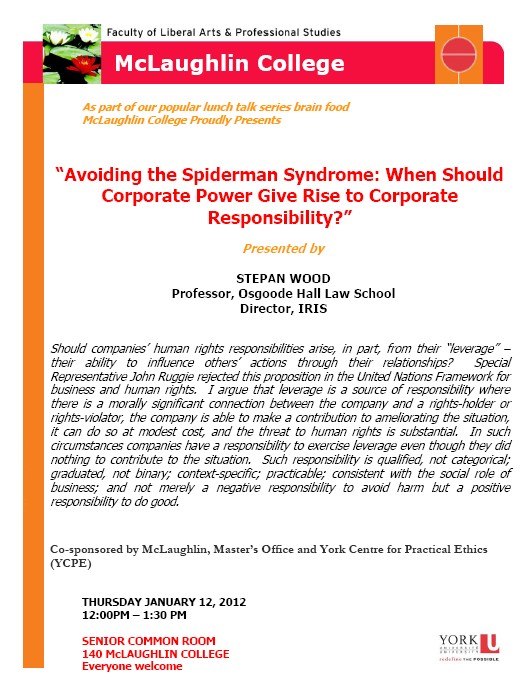Vanessa Lamb
PhD Candidate, Geography
York University
January 26
749 York Research Tower
1:30 - 3 pm
While debates have alternated from arguments of a border-less world to arguments that maintain borders are everywhere (i.e., Balibar 2004), recent scholarship in geography has focused on the question of not just where borders are (or are not) located, but on the question of who borders (Johnson et al 2011, Rumford 2008). I examine the ‘who borders’ question at the Thai-Burma border by looking at the daily practices and performances (i.e., the borderwork) of those at the political border, drawing on fieldwork in 2010-11. As I demonstrate through examples from the environmental decision-making process around one large dam proposed at the border, the involvement of non-state actors in border-making is contradictory and multi-faceted in that it works to destabilize and reinforce the political border. Moreover, in contrast to much scholarly and activist work at or regarding the Thai-Burma border, which prioritizes a focus on the state, the “problem” of refugees and border crossing, I argue that the political border has long been (re)made and fixed through the involvement of non-state actors in relation to access and control over natural resources. This is important not only for understanding how the borderwork of local actors matters materially to the re-making of the decision-making framework for development but also, for how the border is (re)made through these same processes.






